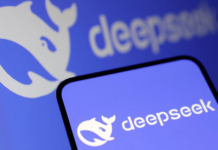Blockchain technology, hailed for its disruptive potential in various sectors, has found one of its most fertile grounds for innovation in the gaming industry. The year 2021 witnessed a remarkable surge in the blockchain gaming market, soaring from a nascent stage to a staggering $3 billion market size. Projections indicate that this figure will skyrocket to a colossal $39.7 billion by 2025. What fuels this meteoric rise is the capacity of blockchain gaming to generate Non-Fungible Tokens (NFTs) and introduce innovative business models like free-to-play and play-to-earn.
Understanding Blockchain Gaming
Blockchain gaming refers to video games that leverage blockchain technology, enabling the creation, trading, and ownership of NFTs. Unlike traditional games, which are highly centralized, blockchain games operate on decentralized networks, ensuring that players have full control over in-game assets and currencies. In blockchain games, players can purchase in-game items using cryptocurrencies and NFTs, which can then be traded for real money or other cryptocurrencies. The ownership of these in-game assets is guaranteed through the issuance of NFTs, giving players the freedom to exchange and sell them both within and outside the games.
The Play-to-Earn Model: Rewarding Gamers
One of the most enticing features of blockchain gaming is the play-to-earn model, which allows players to earn rewards while playing games. Unlike traditional gaming, where players invest time and energy without any financial return, blockchain games offer players the opportunity to monetize their gaming skills. Players can earn rewards such as cryptocurrency, weapons, avatars, skins, and currencies, with complete ownership of these items. Some players have even turned blockchain games into a reliable source of income, leveraging their gaming prowess to earn a livelihood.
NFT Generation: Revolutionizing Gaming Economies
The ability to generate NFTs within games has attracted millions of players worldwide to the realm of blockchain gaming. Unlike traditional gaming assets, NFTs can represent both virtual and tangible items, expanding their utility beyond gaming. Gamers can acquire, trade, or transfer NFTs to other compatible games, creating a robust gaming economy powered by blockchain technology. Developers and game platforms are increasingly venturing into the blockchain gaming sector, attracted by its uniqueness, trustless environment, interoperability, and security.
The Surge in Blockchain Gaming Platforms
As blockchain technology continues to disrupt the gaming industry, an increasing number of developers and game companies are embracing blockchain platforms. Globally, blockchain-based gaming platforms have been valued at billions of dollars, attracting investments from major players in the gaming industry. Microsoft’s acquisition of Activision for $68 billion and Ubisoft’s foray into the blockchain market with NFTs are just a few examples of this trend. Furthermore, the accessibility of blockchain-based games on smartphones and the internet has contributed to their widespread adoption, even in regions like India.
Challenges Facing Blockchain Gaming
Despite its rapid growth, the blockchain gaming industry faces several challenges that hinder its expansion. One of the primary challenges is the general lack of awareness about NFT and blockchain technologies. While these technologies are not new, many still perceive them as mere buzzwords and fail to recognize their sophisticated advantages in gaming. Moreover, regulatory uncertainties surrounding cryptocurrencies and NFTs have deterred many gamers and creators from exploring blockchain games. In addition, inadequate data access infrastructure in developing and disadvantaged countries, coupled with linguistic barriers in games, has restricted the growth of the blockchain gaming market.

Heading Towards a Bright Future
Although blockchain gaming is still a nascent concept, its potential for revolutionizing the gaming industry is undeniable. As more game companies venture into the blockchain gaming space, misconceptions about blockchain technology are expected to diminish, and public awareness will increase. The emergence of new gaming platforms and evolving consumer demands will likely break down existing barriers, propelling the blockchain gaming sector to growth. With social interactions, in-game asset ownership, and opportunities for earning rewards and revenue, blockchain gaming is set to transform the gaming landscape in the years to come.






